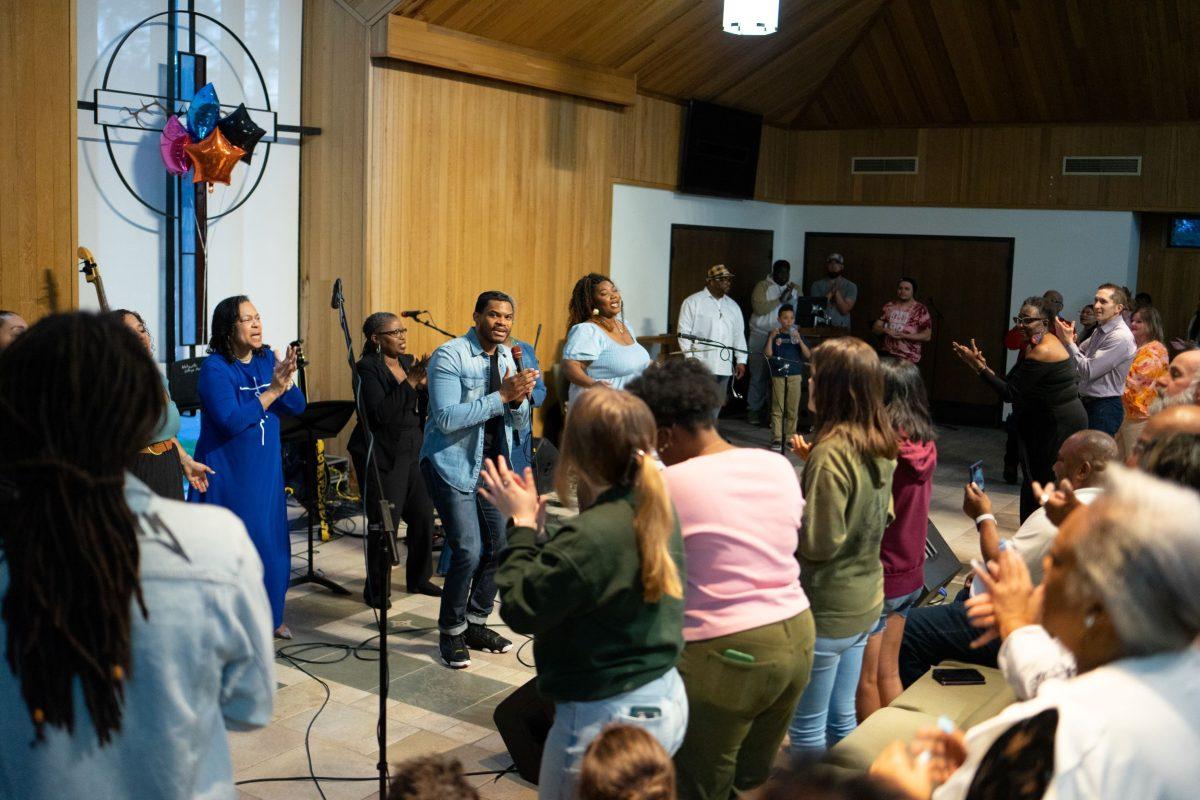Nearly 7,800 miles away, Whitworth senior sociology student Diana Cron is watching first-hand as riots break out in Andhra Pradesh, India. Cron arrived in July, and will study at the University of Hyderabad through December with the ISEP program.
“As a sociology major, it’s extremely fascinating to study and take part in a culture that is so incredibly different from everything I’m familiar with,” Cron said. “It helps me understand my own culture at the same time I’m learning about a new one.”
Andhra Pradesh is one of the 28 states in India, located on the southeastern coast. Hyderabad is the state capital, and also the biggest city, with a population exceeding 40 million.
For over 50 years, activists have been campaigning for a separation of Telangana, the district of which Hyderabad is located, from the Andhra Pradesh state. According to BBC News reports, the Indian people in the region believe that they have been neglected by successive governments.
Shortly after Cron arrived in Hyderabad, she posted on her blog page: “I’m learning that India is modern, and it is ancient. It is extremely wealthy, and it is impoverished. This place is full of contrasts that make it impossible to understand, but I know one thing: I’ll never be bored here.”
Those contrasts are what the people of Telangana have been noticing for years. The push for separation and formation of Telangana as an independent state has provoked violence in India and fueled demands for other separations of states across the country.
BBC News reported that back in 2009, the Indian government agreed to start the process of splitting the Telangana region from the rest of the state of Andhra Pradesh. However, when other regions of Andhra Pradesh protested the split, the government halted its efforts.
The Telangana region contributes about 60 percent of Andhra Pradesh’s revenue, and the two main rivers that provide water resources to Andhra Pradesh are located within Telangana. Cron said supporters of the Telangana movement say that while Telangana contributes a lot of its resources to the support of the rest of the state, it does not receive the majority of its allocated funding for programs and development in the region, nor do residents of Telangana receive the 42 percent of openings in universities that are reserved for them.
BBC News said that it is not the number of residents that has been the challenge for the splitting of the state, but rather the diversity of language. The country houses 18 official languages, and some of the residents from outside Telangana see the division as a split of the Telugu-speaking homeland.
Cron wrote on her blog that a few members of the campus political group Telangana Vidyarthi Vedika were offended by some comments made by another campus political group, called the Students Federation of India, in September. As a result, the members of the Telangana Vidyarthi Vedika organized a student strike of all classes on Tuesday, Sept. 25. Roadblocks were set up early in the morning, and the students were encouraged by guards to stay away from campus, Cron said. Those who did attend classes were asked by the political group members to boycott their classes and go home.
“University student protesters are extremely passionate, determined and willing to make sacrifices for a cause that they really, truly believe in,” Cron said. “My program director always sends out an e-mail when there is a protest in the city warning us to stay as close to campus as possible.”
That was the first large protest and many followed. According to BBC News, India saw violent protests both for and against the new state proposal back in 2010. A renewed wave of violence began with the clash of pro-Telangana activists and the Hyderabad police on Monday Oct. 1, which paralyzed the schools and most of the shops and businesses.
“One thing I’ve learned in my time here [is] Indians love protests,” Cron posted on her blog. “People are very socially and politically active, and it seems like anything can set off a strike or a boycott or marches in the streets.”
The police reported to BBC News that thousands of activists violated a restraining order which barred them of joining the march. When violators entered the prohibited area, the police blasted tear gas towards the crowd.
Times of India reported that at least 400 people from each of the surrounding Telangana districts have been detained by the police.
Cron said that while she hears about the riots, she has never taken part in one of them personally. As a white American woman, she said it would be very dangerous for her to publicly take a side on such a tumultuous issue.
BBC reported that the final decision over the division of the state lies with the Indian Parliament; however, the state assembly must also pass a resolution to approve the creation of a new state.
The Indians are empowered by a belief held by Gandhi that if you protest long enough you will eventually get what you want.
“Social movements and protests are a major part of life, and people aren’t afraid to take risks, make bold statements and fight for their own rights,” Cron said.
Contact Jennifer Ingram at [email protected]





